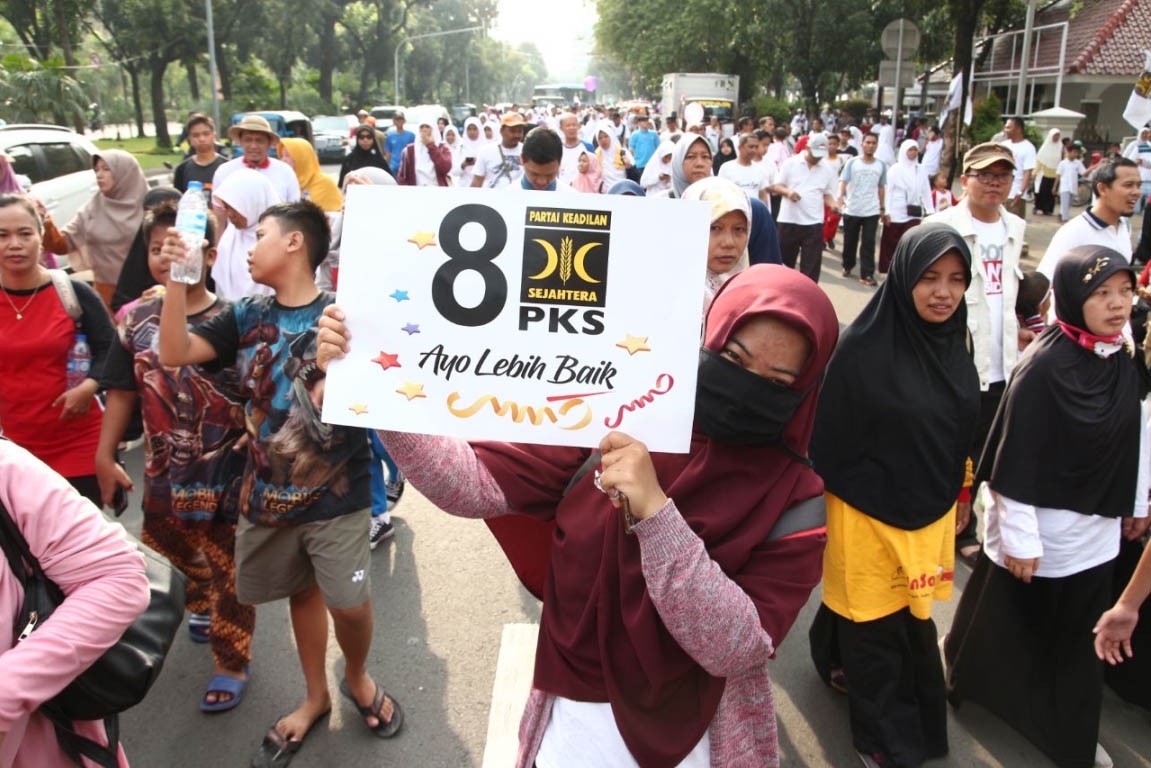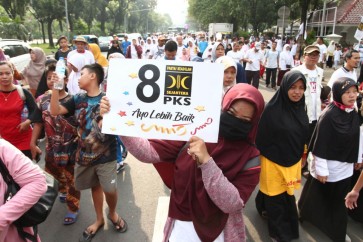Popular Reads
Top Results
Can't find what you're looking for?
View all search resultsPopular Reads
Top Results
Can't find what you're looking for?
View all search resultsIslamist parties struggle for relevance in Muslim-majority Indonesia
The large population of Muslims does not always translate into the victory of the parties because Indonesian Muslims, despite their religiosity and conservative outlook, have been more interested in clean government and social justice, instead of identity politics
Change text size
Gift Premium Articles
to Anyone
A
s a predominantly Muslim country, Islamist representation has been visible in politics since Independence Day, marked by the rise and fall of Islam-based political parties.
In the country’s first general election in 1955, Masyumi and the Nahdlatul Ulama (NU) were among winners, placing in second and third behind first president Sukarno's Indonesian National Party (PNI).
Masyumi was later disbanded for its alleged involvement with Revolutionary Government of the Republic of Indonesia (PRRI) rebel movement in West Sumatra, leaving the NU and three other political parties—the Indonesian Muslims Party (Parmusi), the Indonesian Islamic Union Party (PSII) and the Islamic Education Union (Perti)—to participate in 1971 election.
Former president Soeharto later restructured the multi-party system and merged all of the Islamist parties into a party called the United Development Party (PPP) in 1973.
Now the oldest surviving Islamist political party, the PPP has to compete with newer Islamist parties to maintain its relevance with Indonesian voters, whom, despite their religiosity and conservative outlook, had never brought religion-based political parties to the mainstream political force in the post-Soeharto period, also known as the Reform Era.
In fact, Islam-based political parties are struggling to meet the 4 percent electoral threshold required to send their members to the House of Representative in the upcoming simultaneous presidential and legislative elections.
A recent survey by the Centre for Strategic and International Studies(CSIS) predicted that the electability of the PPP, along with the Prosperous Justice Party (PKS) and the Crescent Star Party (PBB)—two political parties established in the wake of Soeharto’s fall in 1998—stood at 3 percent, 4.6 percent and 0.4 percent, respectively. With less than a week until the elections, they are on the verge of not securing any seats at the House.


















